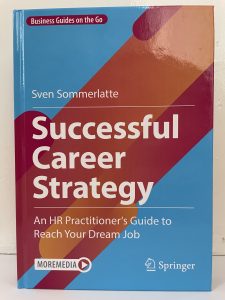Introduction
Personal and professional needs may vary at the different stages of our working life. People who are more advanced in their career may be willing to sacrifice salary to have longer weekends. They may also wish to step back from leadership responsibility to reduce operational stress.
But this type of career life cycle management is still a bit taboo, especially at the later career stages. While the new generations are quite vocal about their expectations, older generations may feel inappropriate to bring this up. They may even fear age discrimination or the risk of losing their employment if they express the need for an adaptation of their working mode.
Let’s see how Roger managed that situation and what we can learn from his example.

Roger’s story
Roger has started his career at age 21 in a large retail company. He worked himself up the ranks and finally became VP Asia Region. This had been his career aspiration. He performed very successfully in this regional role for 5 years. Roger enjoyed interacting with people in a multi-cultural setting, he enjoyed traveling and he had pleasure managing the business challenges in that region. Roger could proudly look back at a very successful career.

But at some stage he felt that more of the same was no longer really attractive for him. He wanted to continue to work, but his preference was to move into a different working mode. The heavy operational responsibility started to become a burden. Also, the travel requirements were no longer a pleasure but started to become exhausting.

Roger always had a passion for people topics and had even received a coaching training. This was an area that was now becoming increasingly of interest for him. He thought that he could use this passion to contribute in a different way.
Roger also considered the option to stop working. A couple of very successful years where his region had performed far beyond budget expectations had allowed him to put sufficient money aside to retire earlier.
But Roger was still full of energy and keen to continue. He took time off to clarify this in his mind. He wanted to have a shorter working week to be able to spend more time with his partner and with his grandchildren. He also wanted a role with less pressure and constraints.

Roger decided to engage in a conversation with his line management and with HR. He felt that they had a relationship of trust and that he could share his thoughts about the options ahead and about his preference to pursue his career in a different mode. Roger shared his desire to make his expertise and knowledge available to the organization in a consultative way, with less direct P&L responsibility. He also shared his thoughts about his private needs and his desire to have more time for himself in the future.

Roger had put a lot of hope into this conversation and was very positively surprised about the response. The company was keen to draw on his deep knowledge of the organization, its people, its products, and its markets also in the future. His line manager and HR partner were ready to discuss working modalities how to best match his needs and the organizational requirements.

As an outcome, Roger moved out of his regional leadership role and ensured a robust hand over to his successor. He reduced his working time by 20% to a 4 days working week. He was offered the possibility to work remotely for half of the time. That gave him the opportunity to spend more time in his country home together with his family, while still enjoying a fulfilling professional working life.

He joined the internal organization development team as coach, sparring partner, internal consultant, and facilitator. His deep knowledge about the company and his great people skills allowed him to make a significant contribution. He became a highly demanded resource for leadership team meetings, change management support, large meeting facilitation, senior leadership coaching, and an advisor to the business.

Roger continued his professional life for additional five years, which was highly rewarding for him, and very beneficial for the company.
What can we learn from Roger’s story?
Career lifecycle management is really important not only when you make a career start but all the way through. As a matter of fact, managing the later part of your career is particularly important. It is advisable to be very clear for yourself on what your needs and requirements are. Instead of running full speed until the day when you hit the wall, it is advisable to anticipate.
I would recommend that you find trusted partners in the organization to discuss what possibilities your company could offer. Be clear on what support you would be able to provide and try to tailor that proposition to your understanding of the company’s needs. In a time of “war for talents”, losing highly experienced and skilled individuals is increasingly sub-optimal for any company. You may be able to find a win-win agreement, allowing you to adjust the working conditions to your needs.
More information in my book:
Sven Sommerlatte : Successful Career Strategy – An HR Practitioner’s Guide to Reach Your Dream Job (Springer, June 2023). ISBN: 978-3-662-66790-3
